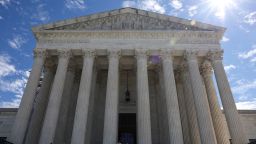begin quote from:
https://www.cnn.com/2024/01/03/opinions/trump-iowa-new-hampshire-trials-zelizer/index.html
Opinion: Trump’s real vulnerability
Editor’s Note: Julian Zelizer, a CNN political analyst, is a professor of history and public affairs at Princeton University. He is the author and editor of 25 books, including The New York Times bestseller “Myth America: Historians Take on the Biggest Lies and Legends About Our Past” (Basic Books). The views expressed in this commentary are his own. View more opinion on CNN.
We’re on the cusp of the Iowa caucuses and New Hampshire primary, which have gained a not-always-deserved reputation for being game changers in the presidential nomination process.
Ever since former Georgia Gov. Jimmy Carter shook up the 1976 nomination process with a strong showing in Iowa that propelled him to victory in New Hampshire—turning him from “Jimmy Who?” into the frontrunner—the nation has turned its eyes toward the Hawkeye State to see if history will be made.
The truth is that Iowa has not been an infallible determinant of success. George W. Bush was the last Republican nominee to win Iowa. “Since the caucuses began in 1972,” the Des Moines Register reported, “there have been 18 caucus winners between the two parties: 10 Democrats and 8 Republicans. Over half of those winners went on to secure their party’s nomination in that cycle, but only three would be elected president.”
Remember Presidents Paul Tsongas and Pat Buchanan? You don’t because even though they won the New Hampshire primary, they didn’t win their party’s nomination for the White House.
In 2024, it may be that caucuses and primaries are secondary to the drama that is playing out in courtrooms, arising from the four prosecutions of former President Donald Trump, the GOP frontrunner.
If there’s going to be a reversal of fortune, it will likely grow out of legal discoveries and decisions that are made into the fate of the former president who, as of now, remains far and away the strongest candidate in the Republican pack.
In other words, it’s all about the trials. Although Trump has been able to fulfill the political maxim of turning his greatest weakness into a strength—meaning January 6 and all that surrounded it—it is possible that turns the other way.
Most important, there is some evidence suggesting that a conviction could change the ways that Republican and independent voters think in significant fashion.
While the indictments and trials have done little to hurt Trump politically thus far, and in many ways, they seem to have boosted his standing by fueling the anti-establishment message and making it difficult for opponents to secure much airtime, it is possible that a conviction would look very different. (Trump has denied wrongdoing in all of the cases brought against him.)
Several polls have found that if he becomes a felon, more of the electorate might look at him in an unfavorable light. In the New York Times/Siena poll, for instance, Trump’s lead in four swing states drops into a deficit.
Not only would Trump becoming a felon, rather than an indicted former president, change perceptions of the situation but it also could very well focus much more attention on the substance of the criminal cases against Trump rather than on the atmospherics of the GOP primary race.
Until now, most of the public has not really been paying attention to politics. Unlike the political junkies who focus on the doings of Washington on a daily basis, many Americans have been more concerned about paying the bills and taking care of their kids.
The issues that have resonated in recent years are those that voters perceive have the biggest immediate impact on them, including reproductive rights, the education wars, immigration, inflation and more.
But given the way the political and judicial calendars now are starting to coincide, verdicts on Trump’s potential guilt could, in at least one of the four cases, come when voters are beginning to become more focused on the election. Of course, if Trump is successful in delaying the cases until after the election, then the courts will be helping to solidify his position in the GOP race even further.
If Trump is convicted, President Joe Biden will also be freed up to speak more bluntly about what Trump has done and the threat that he—with Republican support—has posed to democracy. Until now, Biden has been extremely reluctant to bring up the issue of Trump’s criminal charges because he does not want to appear as if he is politicizing a matter handled by the Department of Justice.
Yet the moment a jury speaks or a court rules, we could expect an intensification of the president’s rhetoric which will in turn create greater pressure on the GOP.
If anything has the ability to shift the way that Republican voters evaluate the prospects for other candidates such as former Ambassador Nikki Haley and Florida Gov. Ron DeSantis, it is the criminal cases. If Republican voters are laser-focused on picking the person who has the best odds to defeat President Biden, a conviction of Trump could greatly benefit his Republican rivals.
As conservative writer John LeBoutillier pointed out in The Messenger, if Trump does face trial this spring, he would have to decide whether or not to consider a plea deal. Obviously, any development of this sort would instantly transform the political landscape.
Right now, Trump has a dominant lead in the race for the Republican nomination. We will soon learn if the polls are right about his lead. But if they are, then the likely place to look for a game change isn’t at the ballot box but in a court of law.




No comments:
Post a Comment